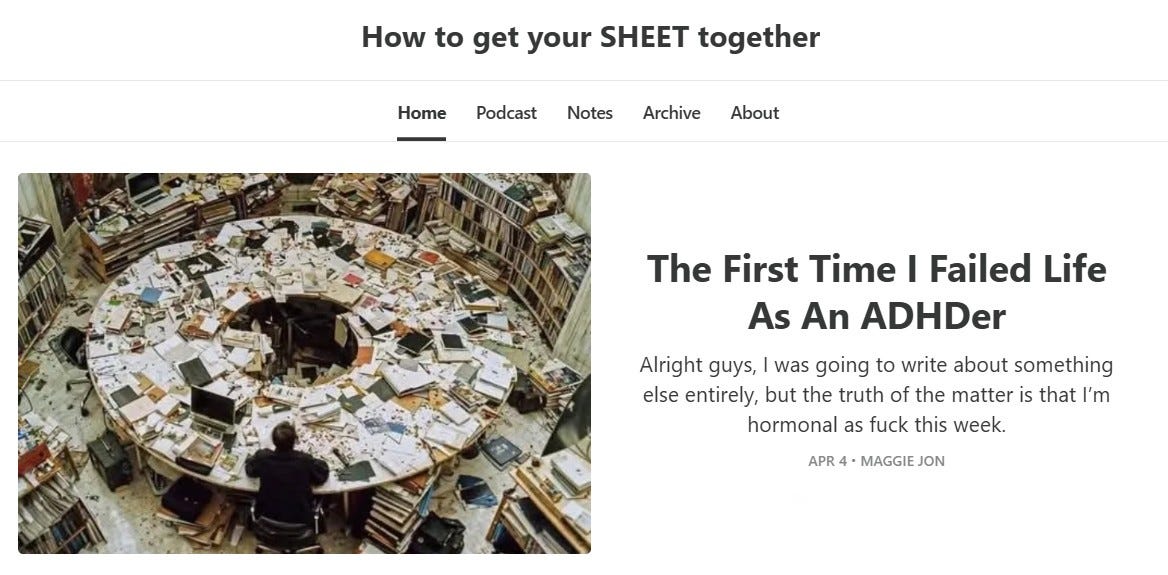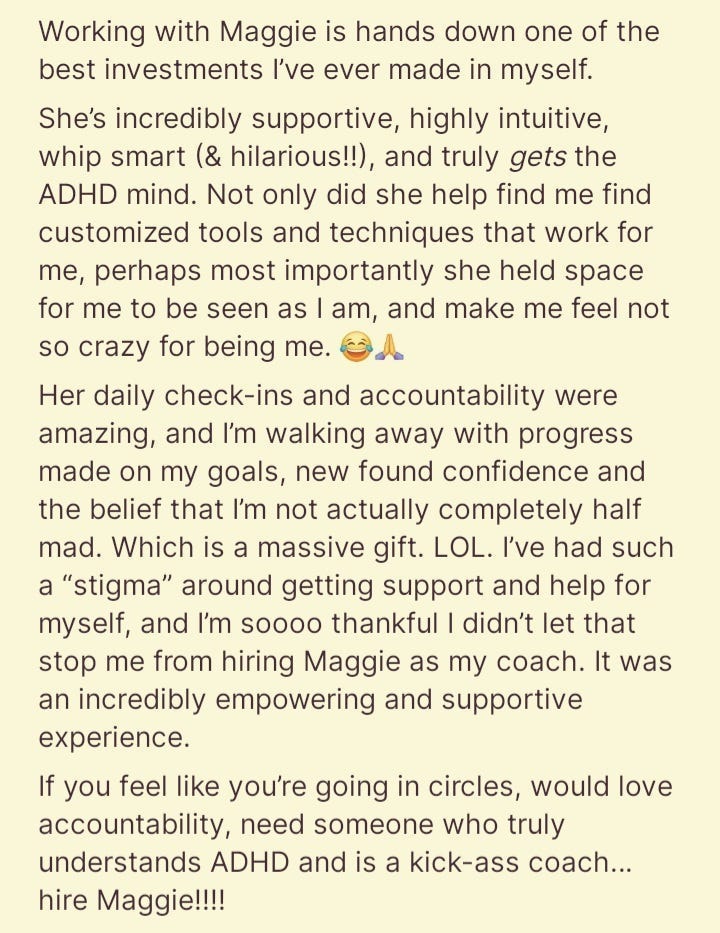“Okay, maybe I have ADHD. So what?”
This is the somewhat provocative question that’s been on my mind for a very long time, and I’ve never really been sure whether it matters. What difference does a diagnosis make?
I posed this question to Maggie in the comments of one of her posts, when I suggested we do this podcast:
Maggie is a kindred spirit when it comes to swearing, but I can’t come anywhere near matching her unparalleled style and talent.
(For what it’s worth, there are very clear proven links between swearing and intelligence, and there are very clear unproven but strongly correlated links between good language learners and attitudes to swearing. This is anecdotal, but based on my nearly 20 years of classroom practice.)
Maggie doesn’t just talk about ADHD; she swears, laughs, and bulldozes through the fluff, making sure the conversation is as real as it gets. She cuts through the noise, the stereotypes, and the sugarcoated advice to talk about what actually matters.
In this episode we focused on Maggie’s primary area of expertise, as a “38-year-old life & health coach who helps professional nerds with suspected or diagnosed ADHD to get their SHEET (Structure, Health, Environment, Emotions & Thoughts) together.” I wanted to ask her a few questions about what being diagnosed with ADHD actually means. What does it change in a person’s life? What is the impact of having an official label? What about self-diagnosis?
There used to be a stigma attached to being neurodivergent, but thankfully we’ve come a long way from the days of my/our youth “when people thought ADHD was for hyperactive boys or like, totally deranged girls.”
We talked about Maggie’s book, which she wants to be “not fucking boring” and as a regular reader of Maggie’s posts, I can tell you she’ll have no trouble pulling that off.
It’s worth having a look at some of the most common symptoms of ADHD:
Impulsiveness
Disorganization and problems prioritizing
Poor time management skills
Problems focusing on a task
Trouble multitasking
Excessive activity or restlessness
Poor planning
Low frustration tolerance
Frequent mood swings
Problems following through and completing tasks
Hot temper
Trouble coping with stress
(Source: Mayo Clinic)
Every single one of those symptoms applies to me. In super high doses, I might add.
Here is just a small sampling of Maggie’s written posts and she also has an excellent podcast.
Don't Fucking Ever Work With A Life Coach
The First Time I Failed Life As An ADHDer
Language Learning Triggered This Tweety's Trauma (I fucking love alliterations)
Holy Fuckballs, I Guess I'm Writing A Book
Have a look at this glowing testimony from one of Maggie’s clients to get an idea of her impact as a life coach:

















Share this post